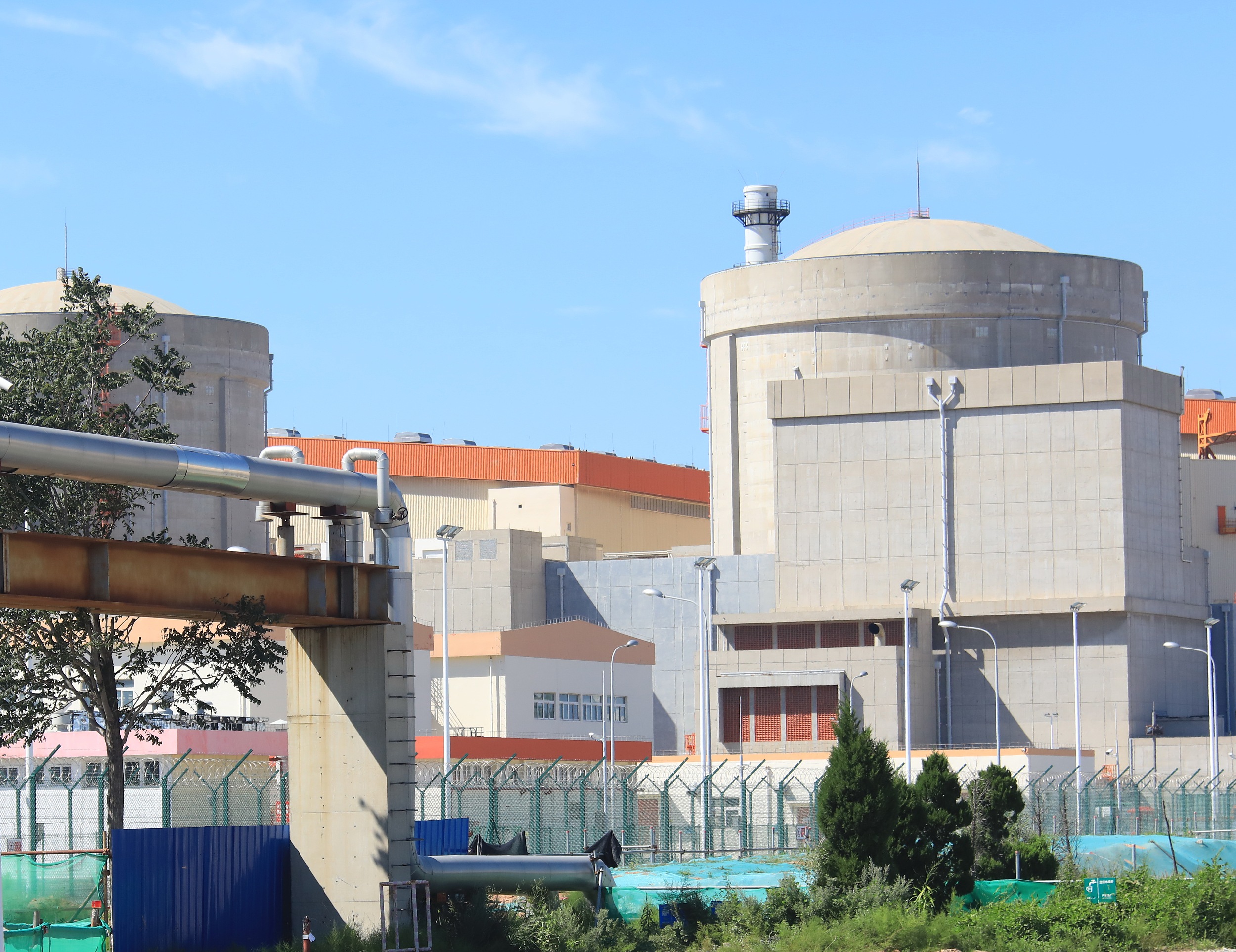Nuclear Energy, Biomass, Wind Power — Clean Energy Keeps Homes Warm This Winter

Powered by Hongyanhe Nuclear Power Plant in Liaoning province, the first nuclear energy residential heating project in northeast China is officially put into operation. (PHOTO: VCG)
By?LIN?Yuchen
Hongyanhe city in northeast China's Liaoning province has begun another internal heating season. Unlike before, the warmth comes from a nearby nuclear energy station, which was officially put into operation this November. The station covers a heating area of about 240,000 square meters, replacing the original 12 coal-fired boiler houses and benefiting nearly 20,000 local residents.
According to the report to the 20th CPC National Congress, China will advance initiatives to reach peak carbon emissions in a well-planned and phased way in line with the principle of building the new before discarding the old. Clean energy is joining the array of heating sources in China to achieve the target of peaking carbon emissions.
Nuclear heat
The Hongyanhe nuclear heating plant represents China's first nuclear heating project in the northeast and the largest power and energy investment in the city. When in full operation, it is expected to reduce coal consumption by 5,726 tons and carbon dioxide emissions by 14,100 tons per year.
Besides Hongyanhe, China has now completed three nuclear heating projects, operating in three different provinces.
On November 9, 2021, the Nuanhe-1 nuclear heating project began operation, making Haiyang, a city in the eastern part of Shandong province, the first in China to realize zero-carbon heating.
On December 3, 2021, the Qinshan nuclear energy heating demonstration project began operation. The project was developed by China National Nuclear Corporation, estimated to reduce electricity consumption by about 196 million kWh per year after its completion.
"The heat generated by a nuclear power plant is transferred to a heat company and then sent to end users through a heating pipe network in which only heat is exchanged, without much energy waste inflicted by medium," said Huang Qian, chairman of the board of directors of Qinshan Nuclear Power Corporation.
Biomass emission reduction
On September 1 this year, the biomass pellet Jieneng-1 witnessed abundant productivity in Mishan city, Heilongjiang province, replacing nearly 30,000 tons of coal-fired fuel for heating in winter.
Forty -three local biomass heating boilers provide heat for 16 subordinate towns and a community in Mishan, amounting to over 260,000 square meters of land.
Developed independently by Shanghai Power Equipment Research Institute (SPERI), the Jieneng-1 pellet is expected to weed out coal use in about ten-million-square-meter areas by 2024.
"The Jieneng-1 biomass pellet takes agricultural straw, forest residues and agricultural side -processing waste as raw materials to produce coal-like fuel conversion," said Ma Mingjun, deputy general manager of SPERI, adding that the creation of Jieneng-1 conquered the inconveniences caused by the transportation and storage of biomass energy.
Consistent endeavors
Aside from nuclear and biomass resources, the adoption of wind and geothermal energy are also more widely seen in certain areas of China.
State Power Investment Company of Hebei launched China's largest wind power heating demonstration project in Lingqiu city of central province Shanxi. The population of 2,250 local residents and 220 commercial users will fully exploit the region's rich wind power in the 2022 heating season.
By far, the installed renewable energy capacity in China has exceeded 1.1 billion kilowatts, with hydro-power, wind power, solar power and biomass power generation all ranked first in the world.
In 2021, China's clean energy consumption was 25.5 percent, 11 percent higher than 2012, according to the data released by the National Development and Reform Commission (NDRC) on September 22.
Coal consumption dropped to 56 percent, 12.5 percent lower than 2012, and the scale of installed wind and photoelectric power generation plants increased by about 12 times compared to 2012, the data noted.
"In the past ten years, China's central budget has allocated more than 100 billion RMB for the construction of environmental infrastructure," said Liu Dechun, official at NDRC, adding that the country will continually strengthen environmental protection for pollution prevention and control.







